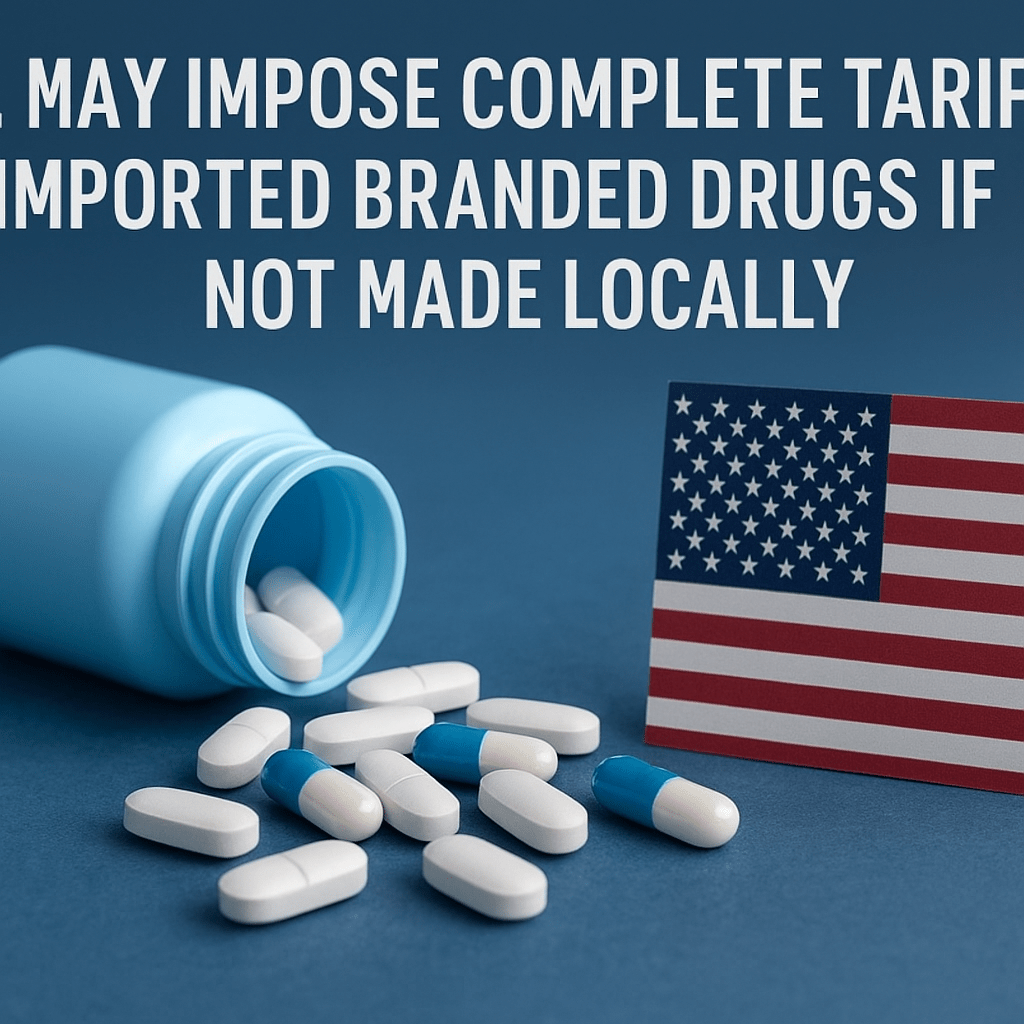Starting October 1, 2025, the U.S. will impose a 100% tariff on all branded and patented pharmaceutical drugs imported into the country, unless the drug companies are actively building manufacturing plants in the United States, President Donald Trump announced.
U.S. to impose 100% tariff on branded, patented drugs unless firms build plants locally, Trump says https://t.co/K3v1MTVAed
— CNBC (@CNBC) September 25, 2025
New Tariff Announcement
President Trump declared this important new tariff rule on Thursday. He clarified that the 100% tariff will only apply to those companies that do not have a U.S. manufacturing facility under construction. In his post on the social media platform Truth Social, Trump explained that the phrase “IS BUILDING” means the company must have already “broken ground” or be “under construction” on a drug manufacturing plant in the U.S. This means drug companies can avoid the high tax if they have started construction on new facilities.
A Push for Local Manufacturing
The tariff measure aims to make pharmaceutical companies set up manufacturing plants in the U.S. as opposed to depending on the importation of medicines into the country. Trump has claimed that this will boost the US supply chain of necessary drugs and also reduce drug prices, although analysts argue that price reductions because of tariffs are not likely. The president argues that building more drug production inside America will benefit the country’s national security and economy.
Industry Reaction
Some pharmaceutical companies have already announced large spending plans to build or expand U.S. manufacturing plants. For example, Eli Lilly recently revealed investments totaling billions of dollars to build new drug plants in Texas and Virginia. However, building these facilities takes years, and some worry whether the construction timelines will satisfy the tariff exemption rules.
Broader Tariff Measures
Along with the new drug tariffs, Trump also announced tariffs on other imported products. Some of the products included are a 25% duty on heavy trucks, 50% duty on bathroom vanities and kitchen cabinets, and 30% duty on upholstered furniture. All these tariffs come into force on October 1 and are part of Trump’s larger approach to protect American employment and manufacturing.
Impact and Uncertainties
The 100% tariff will affect branded or patented drugs, which are new drug products with patents. Low-cost generic drugs might not be affected. The policy would disrupt the supply chain for drugs and raise drug prices for American consumers unless industry makers change their production to the U.S. Indian drug manufacturers, being a large provider of drugs to the U.S., are closely monitoring the situation as the tariff could be applied to trade with the two nations.


